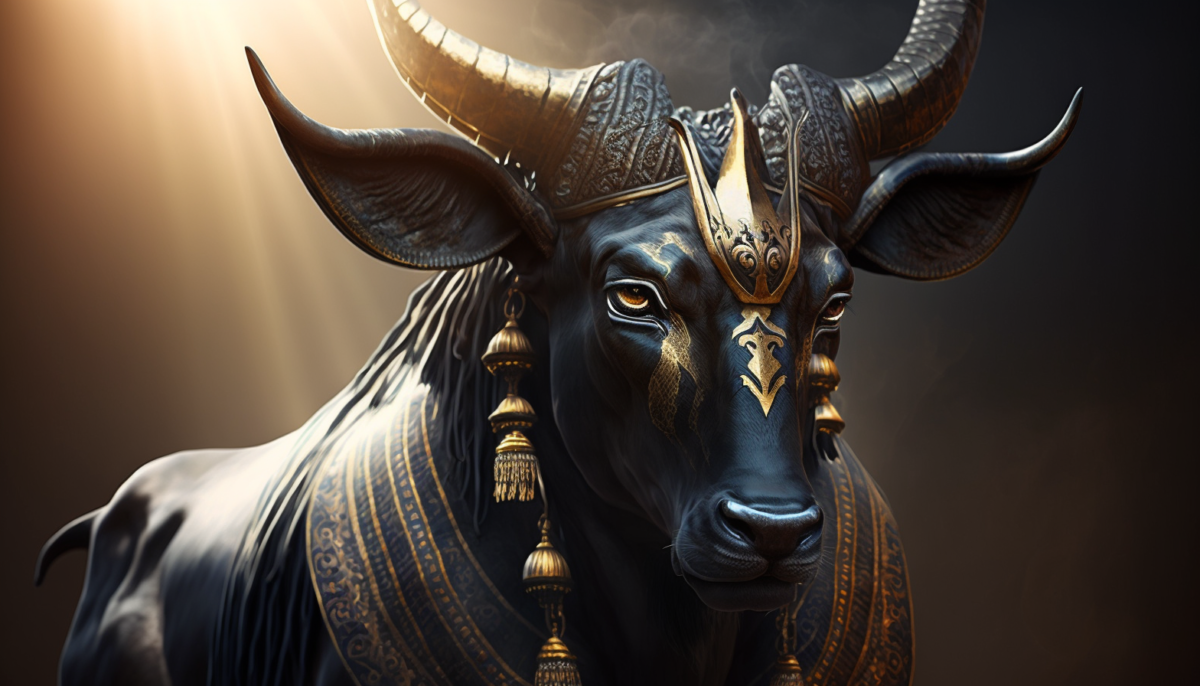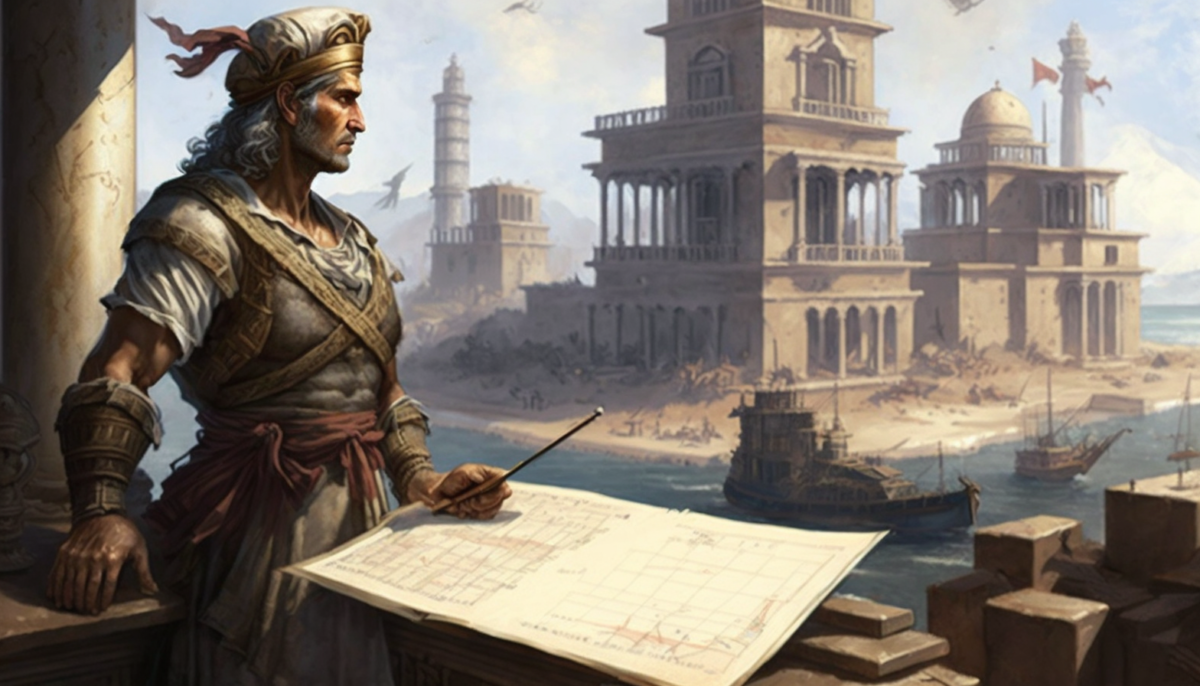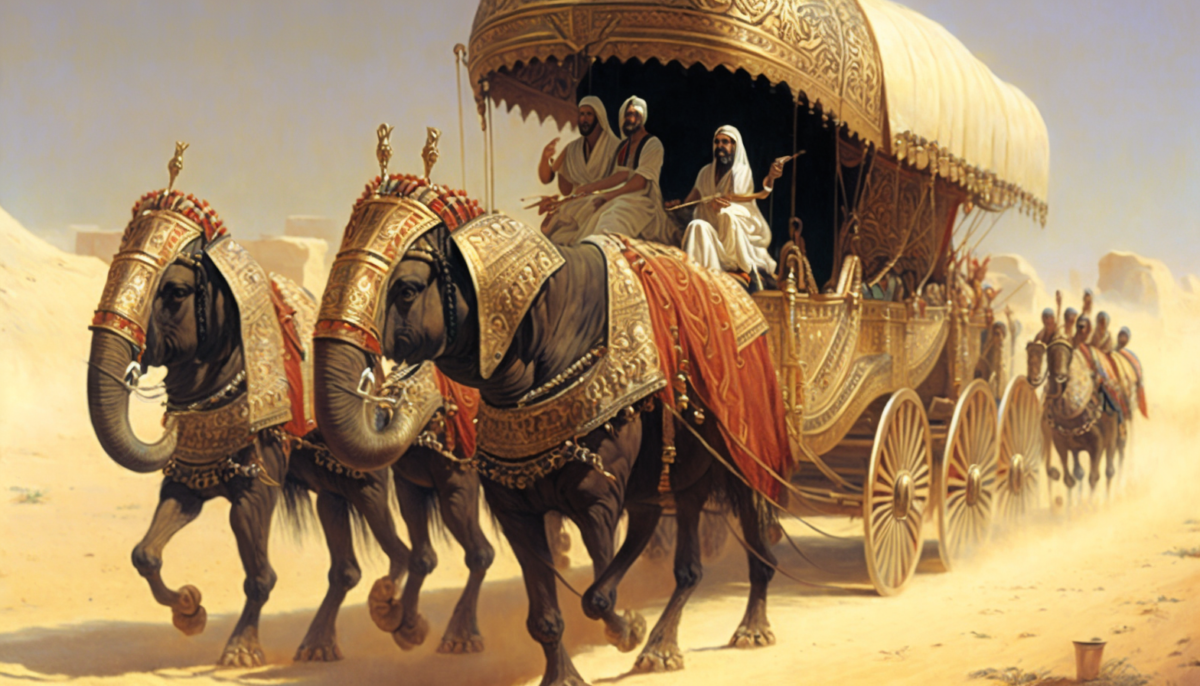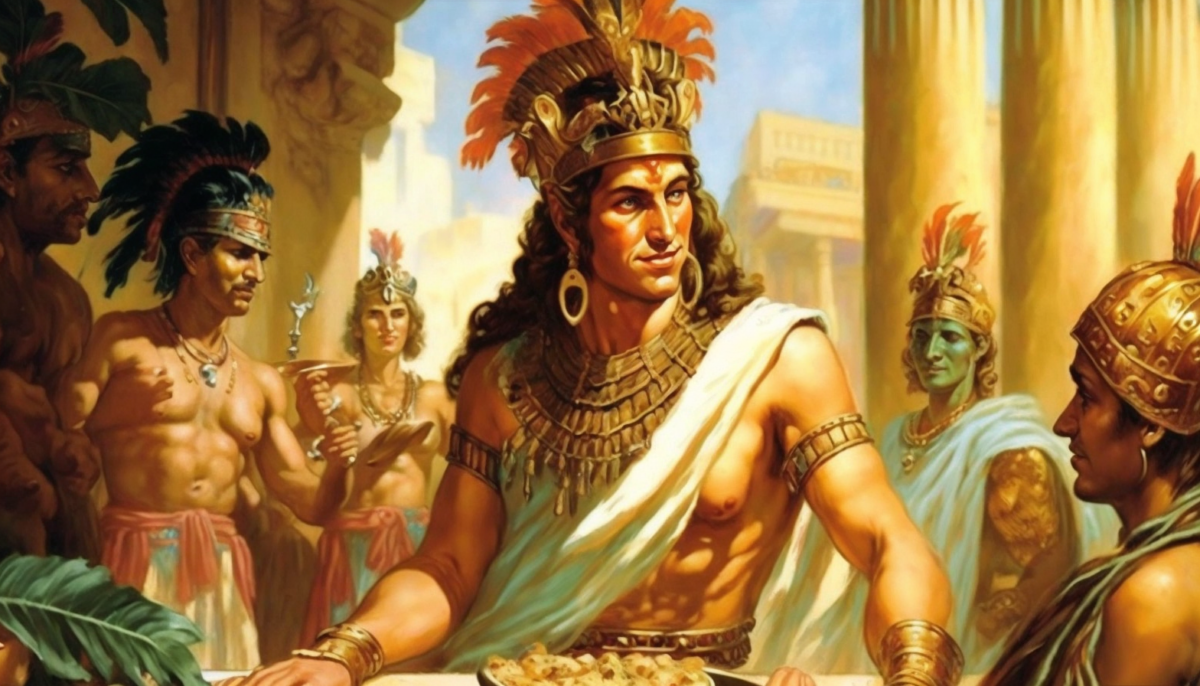Ready to set sail on a historical adventure? This article takes you on a riveting journey through Alexander the Great’s exploits in Egypt. From crushing the Persians to laying the foundation stone for the iconic city of Alexandria, Alexander left an indelible mark on the sands of time.
We’ll dive deep into his military strategies that led to the defeat of Persian forces and the claim of Egypt under his rule. But that’s not all! We’ll also look at how Alexandria became a powerhouse city in the ancient world.
As the cherry on top, we’ll delve into Alexander’s mystical visit to the Oracle at Siwah. Buckle up, history buffs; this is a ride through ancient Egypt you won’t want to miss!
Egypt under Persian rule
When Alexander the Great rolled up to Egypt’s borders in 332 BC, he found a nation chafing under Persian rule. The Persians, who had overthrown the Egyptian Pharaoh Psamtik III, were less than popular houseguests. Their decade-long rule had left the Egyptians yearning for a change.
Conquest of Egypt without a fight
As Alexander’s army marched through Syria and down into Palestine, he won a series of stunning victories over the Persian empire. Alexander cemented his reputation as a military genius at the battles of Issus, Tyre, and Gaza.
After these victories, the Persian Satrap of Egypt, Mazaces, recognized the futility of resisting Alexander’s advancing army and decided to surrender control of the country without a fight.
The ease with which Alexander took control of Egypt was partly due to the unpopularity of Persian rule and the fact that the Persian presence in Egypt was not deeply entrenched.
The Persian army stationed in Egypt was relatively small, and the country had been governed by a series of Persian-appointed satraps rather than a full-fledged Persian administration. This made it easier for Alexander to assert Greek rule.
The Egyptian people welcomed Alexander and his army as liberators. People saw him as a deliverer of Persian tyranny. The young king, just 22 years old at the time, entered Memphis, the ancient capital of Egypt, as a conquering hero.
Celebration at Memphis
After Alexander’s victory in Egypt, Memphis became the site of a grand celebration. Memphis was an important city in the ancient Egyptian empire, serving as the capital during the Old Kingdom.
By Alexander’s arrival, Memphis was still a prominent city, home to the great temple of Ptah, the creator god of Memphis, and a thriving population.
Sacrifice to Apis

One of the notable acts that Alexander the Great performed during his conquest of Egypt was his visit to the temple of the bull god Apis in the city of Memphis.
Apis was a prominent deity in ancient Egyptian religion, often associated with fertility and the renewal of life. According to tradition, the bull that served as the living embodiment of Apis was believed to die and be reborn every year, symbolizing the cyclical nature of life and death.
During his visit to the temple, Alexander is said to have made offerings and sacrificed to Apis, demonstrating his respect for the ancient Egyptian gods and culture. This act was significant for several reasons.
Learning from Persian mistakes
First, it demonstrated Alexander’s understanding of Egyptian religion and history and his willingness to adapt to local customs and traditions. By honoring the gods of Egypt, Alexander was able to win the support of the Egyptian people and establish his rule more firmly.
Moreover, Alexander’s respect for Apis and the other deities of Egypt stood in contrast to the behavior of previous conquerors of Egypt, particularly the Persians.
The Persians, who had ruled Egypt before Alexander, had shown little regard for the ancient Egyptian religion, which they saw as primitive and backward. They had even defiled the temple of Apis and defaced the images of the god, which had angered the Egyptian people and contributed to their resentment of Persian rule.
By contrast, Alexander’s respect for Apis and the other gods of Egypt earned him the admiration and loyalty of the Egyptian people. He was seen as a just and fair ruler who had come to liberate the Egyptians from Persian tyranny and restore their ancient traditions.
Alexander the Great – Pharoah of Egypt
Alexander’s decision to crown himself pharaoh was a symbolic gesture that aimed to legitimize his rule and win the support of the Egyptian people.
However, despite the importance of this act, there is little evidence to suggest that a lavish ceremony or formal ritual accompanied Alexander’s coronation.
Unlike many of the pharaohs of ancient Egypt, who were crowned in elaborate and highly ritualized ceremonies, Alexander’s coronation appears to have been a more informal affair, likely taking place in Memphis.
The founding of Alexandria

After his successful campaign in Egypt, Alexander the Great founded several cities. The most famous was Egypt’s Alexandria, which Alexander founded in 331 BC on the Mediterranean coast.
At its founding, Alexandria was strategically located at the crossroads of several important trade routes. It had access to the Mediterranean Sea, making it a key center of commerce and culture.
Under Alexander’s rule and the following Ptolemaic dynasty, Alexandria became one of the ancient world’s greatest cities. It became a center of learning and culture, with the Library of Alexandria serving as a hub of intellectual activity and a repository of knowledge from across the ancient world.
Alexander The Great’s visit to the Oasis of Siwah

In 332 BC, Alexander the Great took an unusual route to the Siwah Oasis in the western part of Egypt after conquering Egypt.
Once there, Alexander visited the Oracle of Amun and asked for guidance. The Oracle is said to have greeted Alexander as the son of Zeus-Ammon, thus validating his claim to divinity.
This encounter profoundly impacted Alexander, and he would continue to associate himself with Zeus-Ammon for the rest of his life, using the god’s image and symbols in his coinage and other propaganda.
Alexander the Great in Egypt – after his death
After Alexander the Great died in 323 BC, his body was embalmed and temporarily placed in a golden sarcophagus in Babylon. However, his body would not remain there for long.
Alexander’s former general and friend, Ptolemy I Soter, saw an opportunity to seize the body and use it to solidify his position as ruler of Egypt.
Ptolemy I Soter had served in Alexander’s army and had been appointed satrap of Egypt. When Alexander died, Ptolemy used his position to take control of the body and transport it to Alexandria, where he gave it a lavish funeral and burial in a specially constructed tomb.
Founding of Ptolemaic Egypt

Ptolemy’s decision to seize Alexander’s body was a calculated move to establish his legitimacy and gain the support of the people of Egypt.
By burying Alexander in Egypt, Ptolemy could align himself with the legacy of one of the greatest conquerors in history and establish his dynasty as the rightful successor to Alexander’s legacy.
The Importance of Alexander the Great’s Tomb
For centuries, Alexander the Great’s tomb was a must-visit spot, drawing even the likes of Julius Caesar and Augustus.
But fast-forward to the 4th century AD, when the Roman Empire’s switch to Christianity put this and many other pagan sites in the crosshairs.
Temples were razed, and classical records suddenly went quiet on the whereabouts of Alexander’s body.
What Happened to the Tomb?
So, where did Alexander the Great end up? That’s a million-dollar question as archaeologists and historians are still searching.
Some theories suggest that the tomb may have been destroyed along with other pagan sites. Others believe it could be lying undiscovered beneath modern-day Alexandria.
A Legendary Tale with an Open Ending
From his whirlwind conquest of Egypt to the founding of Alexandria, Alexander the Great’s impact is everlasting. Yet, the mystery of his final resting place adds an intriguing layer to his already captivating story.
Whether buried under Alexandria’s sands, lost to history, or secretly residing in Venice, the legacy of Alexander the Great continues to fascinate and perplex us.
So there you have it—a historical adventure that leaves you with more questions than answers. But isn’t that the best kind of story?
Until the tomb is found, the legend of Alexander the Great remains an open book, waiting for the next chapter to be written.






